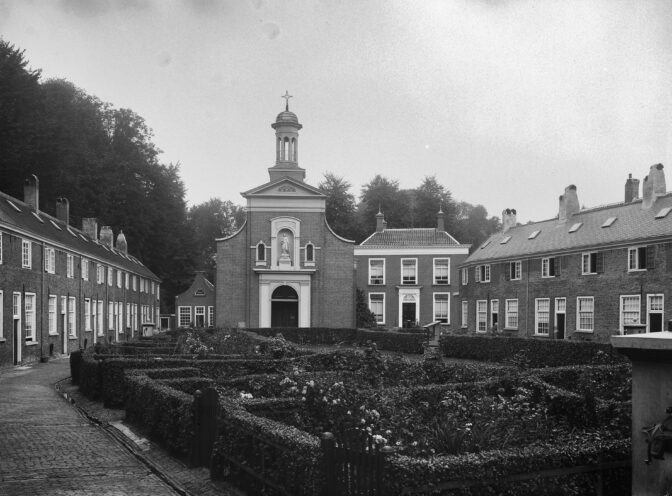A begijn is a beguine. Beguines were single women who lived in communities together. The beguine movement started in the 1100s and spread across Western Europe. Initially, beguines lived in houses together, but over time, they often lived in individual houses around a courtyard.
Beguines were deeply religious women who often dedicated their lives to serving the community, like taking care of the ill or elderly. Unlike nuns, they did not have to renounce their personal possessions, but the beguinages had rules regarding moral behavior and chastity.
The last beguines in the Netherlands died in the 1900s. I have heard stories about one such beguine, sister Frijters, who took care of my great-grandmother in Breda during her illness.

Beguinage in Breda. Credits: Collection Cultural Heritage Service, photo 000232 (CC-BY-SA)

